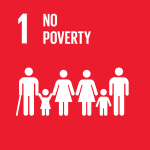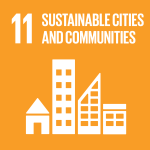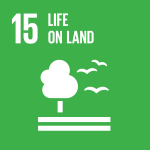Green Climate Fund approves $22.4 million towards building climate resilience in Haiti's Trois-Rivières region

Photo: UNDP
Songdo, 11 July 2023 – At its 36th Board meeting, the Green Climate Fund (GCF) granted US$22.4 million in funding for a flood management project targeting climate resilience in Haiti’s Trois-Rivières region. Supported by the United Nations Development Programme (UNDP), the project aims to reduce the risks associated with climate change-induced flooding through sustainable land management. More than 733,000 people are expected to benefit, while 25,440 hectares of degraded landscapes are to be restored through agroforestry and reforestation.
“It's no secret that Haitians are not among the world's biggest emitters of greenhouse gases. Nevertheless, our communities are bearing the full brunt of the often-devastating impacts of global warming," said Environment Minister, James Cadet. "We therefore welcome with great enthusiasm today's announcement by the Board of the Green Climate Fund regarding funding for this important adaptation project. We want to seize this opportunity to work with the GCF, the UNDP and other technical and financial partners to implement our climate action program at national level. What's more, strengthening the climate resilience of the local population in the Trois Rivières, which happens to be the country's second largest watershed, is an important step in our trajectory towards sustainable development.”
As a Small Island Developing State with limited resources, Haiti faces severe climate risks and is highly susceptible to the impacts of climate change, notably, more frequent and intense floods and tropical storms, including powerful hurricanes originating in the Atlantic. These events are inflicting substantial economic damage, averaging 2 percent of the country's GDP each year between 1975 and 2012.
The devastating effects of climate change-induced flooding have particularly affected the country’s agricultural sector, which accounts for around a fifth of GDP (20.6 percent) and which provides an estimated 46 percent of the population with employment. While the entire country faces growing risks, the Trois Rivières watershed region – spanning Artibonite, Nord, and Nord-Ouest, with a population of around 700,000 – is identified as exceptionally high-risk given its geography but also the high rates of poverty.
At the same time that climate change is driving more extreme weather, unsustainable farming practices and deforestation have radically changed the Trois-Rivières watershed’s landscape reducing natural protections against flooding (by affecting the landscape's capacity to absorb water), impacting water security, agricultural output, and the capacity of the landscape to absorb carbon.
Financing from the GCF will support an integrated land and water management approach to strengthening ecosystem-based resilience at the local, national, and ecosystem levels. US$8 million in co-financing from Heifer International will allow the project to work directly with productive associations to provide both the incentives and means to align productive practices with ecosystem compatible practices that will result in improved food security and enhanced local market systems.
Working with a range of partners – government, productive associations, and community groups – the new project will lean heavily on proven nature-based solutions to transform the management of flood risk and to improve water capture well into the future.
It will also promote sustainable productive land management, through enhanced value chains and local markets to support local food security while enhancing water governance. This in turn will be underpinned by national efforts and regulation for integrated water management that have been prioritized as part of Haiti’s National Adaptation Plan process.
Under the 8-year project:
- 17,740 hectares of land will be brought under agroforestry systems (where pasture or crops are integrated with trees and shrubs)
- 7,700 hectares (77 square kilometers) of degraded “water towers” forests will be rehabilitated
- 54,252 farmers will be supported to take-up more sustainable land management practices
- 1,018,290 tonnes of carbon dioxide equivalent (tCO2-e) will be mitigated
“The measures to be implemented under this project are expected to halve the number of households affected within the floodplain by "once-in-100-year" and "once-in-20 year" flood events,” said UNDP Resident Representative, Nick Rene Hartmann. “They will also generate very significant benefits in areas such as health, food security, and emissions reductions – demonstrating that climate action is indeed sustainable development action. This is a watershed moment and we stand ready to support the government in project implementation, advancing together towards a nature-positive, climate-resilient future, with no-one left behind.”
“We are very pleased to partner with UNDP and Haiti’s Ministry of Environment on this project that will transform lives in the Trois-Rivières region, shielding communities from devastating floods and creating sustainable, nature-positive futures,” said Henry Gonzalez, a.i. Executive Director for the Green Climate Fund. “It will enable us to harness the power of science, and the resolve of humanity, to build a Haiti that is not just climate-resilient but also climate-proactive.”
The project is expected to launch by the end of 2023.
For more detail, please visit the project page.
View the release in French here.
About UNDP
The United Nations Development Programme (UNDP) is the UN's global development network, advocating for change and connecting countries to knowledge, experience, and resources to help people build better lives. The UNDP works in over 170 countries and territories, helping to eradicate poverty, reduce inequalities, and build resilience to crises and shocks.
Globally UNDP remains the largest service provider in the UN system on climate change adaptation and since 2002 has successfully completed 151 adaptation projects across 74 countries, including 41 Least Developed Countries. Nature-base
To learn more about UNDP’s work, please visit www.undp.org
About the Green Climate Fund
The Green Climate Fund (GCF) is the world’s largest dedicated climate fund. GCF’s mandate is to foster a paradigm shift towards low emission, climate resilient development pathways in developing countries. GCF has a portfolio of projects and programmes across more than 100 countries. It also has a readiness support programme to build capacity and help countries develop long-term plans to fight climate change. GCF is an operating entity of the financial mechanism of the United Nations Framework Convention on Climate Change (UNFCCC) and serves the 2015 Paris Agreement, supporting the goal of keeping average global temperature rise well below 2 degrees Celsius.
Additional Notes to Editor
Projections indicate that climatic conditions contributing to flooding incidents will become more prevalent in Haiti.
Over the past four decades, the annual rainfall in the Trois-Rivières region has increased by 15%, with a 52% rise in the frequency of intensely rainy days. By the middle of the 21st century, the region is projected to experience a further increase in extreme rainfall events (>30 mm). Without intervention, these conditions, combined with steep topography and high rates of deforestation, will exacerbate the impact of flooding events.
The Trois Rivières watershed region has witnessed a rise in extreme rainfall events since 1981.
Haiti is a Least Developed Country with approximately 59% of Haitians living under the national poverty line of US$2.41 per day and approximately 24% living under the national extreme poverty line of US$1.23 per day.
More than half of Haiti’s national budget is accounted for by foreign aid, making it challenging for the government to address the current and projected impacts of climate change.
Haiti’s updated Nationally Determined Contribution (submitted to the UNFCCC in 2022) set a conditional target of reducing GHG emissions by 31% by 2030 pending international support. Water, agriculture and health have been stated within the NDC as priority areas for adaptation. The NDC also identifies promotion of forest cover as a potential means and indicator for enhanced ecosystem resiliency.
Also submitted in 2022, Haiti’s National Adaptation Plan (2022 – 2030) identifies four priority sectors for adaptation: agriculture, water, health, and infrastructure. The document contains 340 actions, with 21 that are considered high priority.
Currently agriculture, forestry and land-use change constitute 75% of Haiti’s emissions.
Ruvens Ely Boyer, UNDP Communications Officer, Haiti ruvens-ely.boyer@undp.org
Yves Bernard Remarais, MDE Communication Director, Haiti, yvesbernard.remarais@mde.gouv.ht





